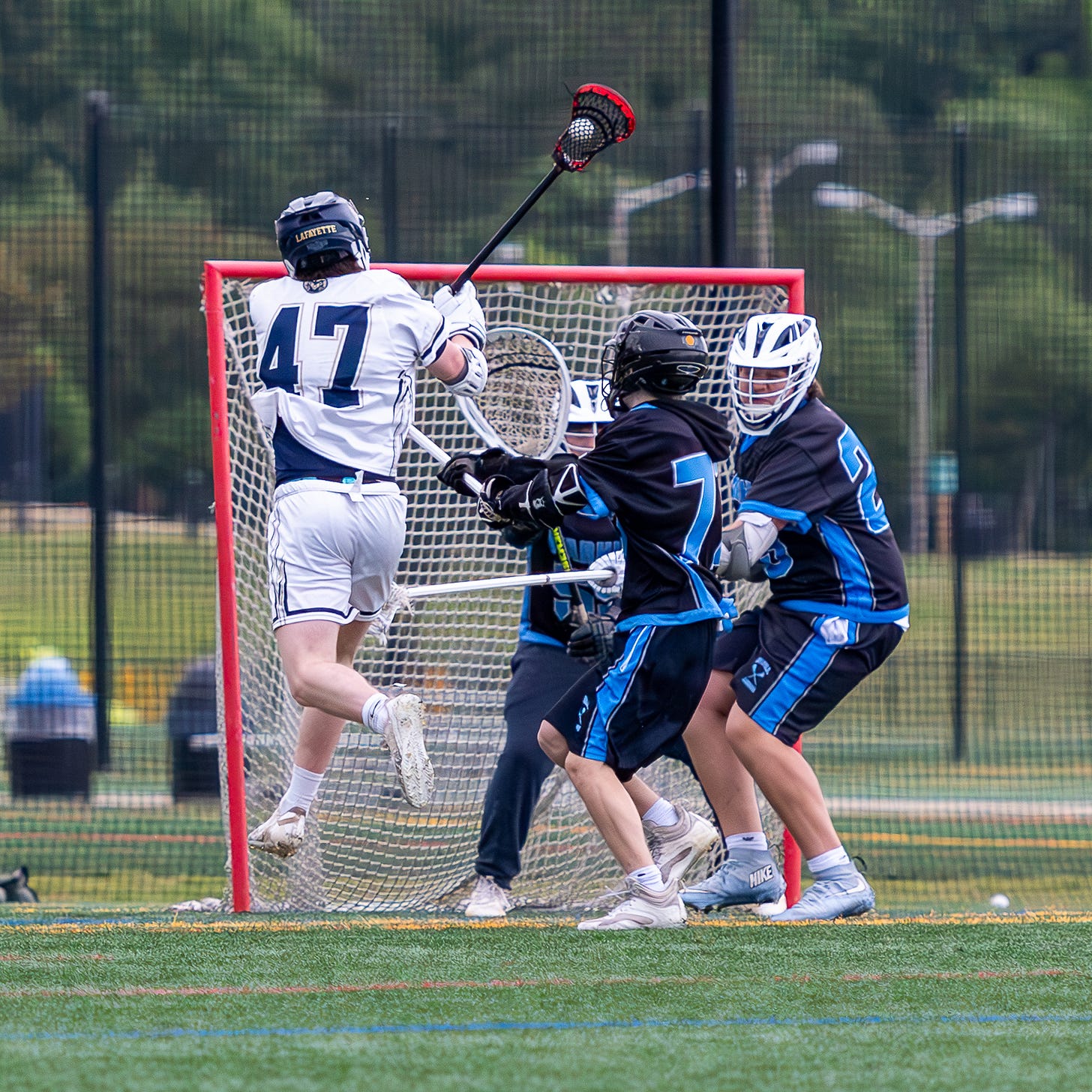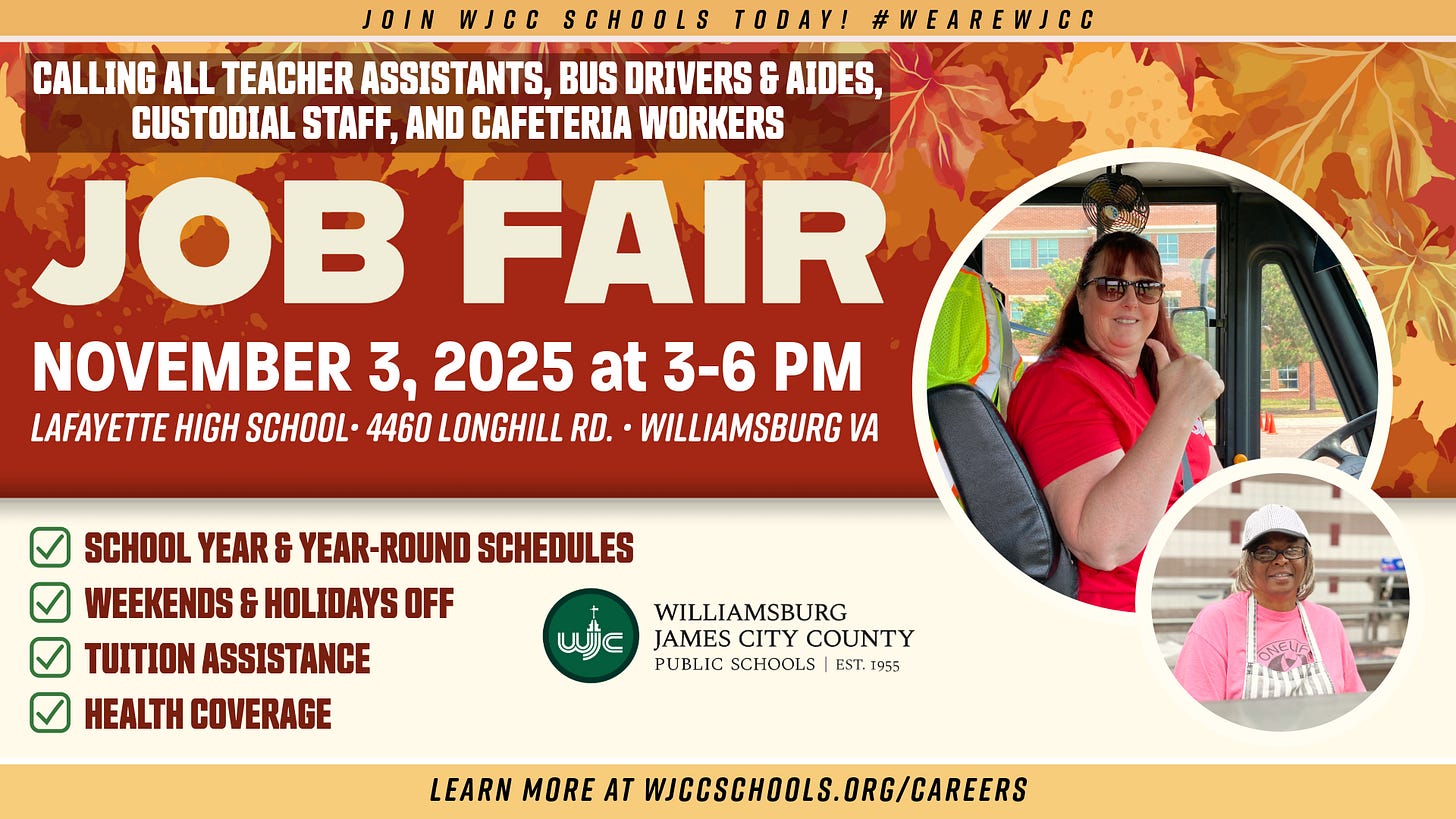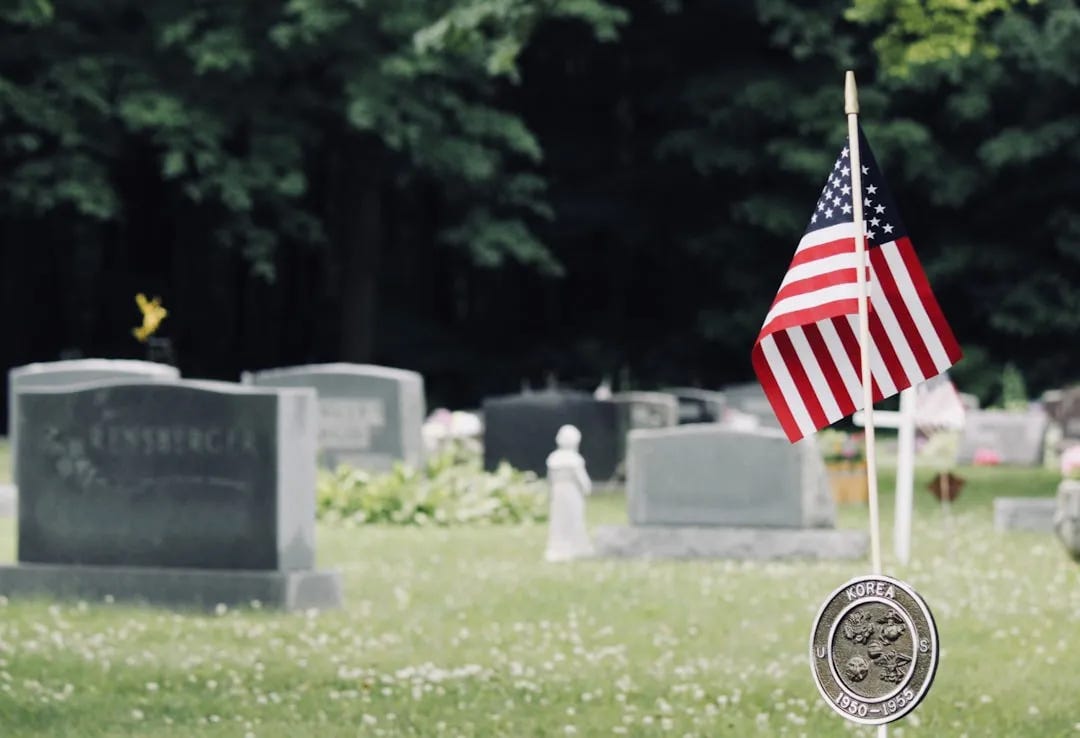It's your fault if you don't know what's going on
Good morning. Today we explain why so many locals don't know what is happening in our area. Also, WJCC schools study recognizing lacrosse as a sanctioned sport.

If you don’t know what our local governments are up to, it’s your own fault. And the reasons you don’t know are part of a national trend that bodes ill for our republic.
I’m going to deviate from my usual coverage here because this problem is close to my heart. But fret not, there is a local angle!
My parents took us out of Cuba after Fidel Castro instituted a bloody dictatorship. When we came to America, my father read the newspaper every day and we argued politics over the dinner table. I continued that habit with my own daughters, both of whom followed me into journalism careers.
When I was growing up, my father was posted to Haiti, another dictatorship with no freedom of the press.
I became a journalist because I learned the quickest way to control a society was to deprive citizens of facts they need to govern their country. That’s what led Thomas Jefferson to opine, “If it were left to me to decide whether we should have a government without newspapers, or newspapers without a government, I should not hesitate a moment to prefer the latter.”
So it’s painful to see we citizens of the world’s freest nation throwing away our democratic advantages. Here’s how it plays out locally:
James City County supervisors were both flummoxed and angered at recent meetings when opponents of the county’s planned $190 million government center complained no one had told them about the project, with some accusing the county of working in secret.
In fact, talk of the government center began five years ago, when county officials decided they had outgrown their current government center at Mounts Bay Road and commissioned several studies.
Since that time, there have been no fewer than three dozen articles about the center in local news outlets, and the county has discussed the plans at 25 different public meetings. James City’s government web site has an entire section on the subject.
So where were the protesters?
If the experts we consulted are correct, many were not reading local news outlets. Several protesters at a recent county meeting said they learned about the government center from watching a video on a Facebook page produced by opponents of the project. Such coverage may well have been accurate, but hardly contextual.
“People just don’t know what’s going on in their communities,” I was told by Marisa Porto, who was my editor when I ran the Daily Press and Virginia Gazette and succeeded me as publisher. “If there’s a standard local news outlet that everybody knows and everybody trusts, research shows that community has increased levels of voting and increased participation in nonprofits and volunteerism.”
Today news sources are highly fragmented, “(and the) audience now expects the content to be delivered to it rather than them going to find news,” she said. “The audience just isn’t as connected. When you add that there are fewer local news outlets, what you get are people who don’t know where to get local news, they don’t know who’s providing trusted local news.”
Porto is now Knight Chair in Local News and Sustainability at the University of North Carolina’s journalism school in Chapel Hill, where she studies the troubled business models of local media and searches for solutions.
You can break down the problem into several components:
First, media fragmentation splintered news audiences across hundreds of channels, weakening or eliminating the local newspapers that provided most local news. More than 3,500 American newspapers have closed in the past 20 years, according to The Medill Center at Northwestern University.
That fragmentation, along with the impact of the internet on classified advertising, destroyed the business model of local news organizations that can no longer afford enough staff to cover local events thoroughly. The news staff of The Daily Press has shrunk from more than 100 to a handful of reporters. The Richmond Times Dispatch, once a statewide newspaper that covered all of Virginia, is going to publish only six days a week.
Medill says many digital-only news organizations have sprung up, like Williamsburg Watch, but they don’t have close to the resources local newspapers once had.
The Center’s recently released study on local news in America found 50 million Americans live in “news deserts” with no sources of local news, or at most one.
Medill reports fewer people are going to newspaper web sites, and television viewing has plummeted. Instead, they consume news they get on their social media feeds, Porto says.
But that creates an even bigger problem, because the technology giants that control social media use algorithms that ensure you see more of what you have looked at previously, rather than a balanced news diet. If you look at a conservative news story, you’ll see more of them in your feed. If you click on a story about left-wing politics, you’ll see that instead.
James Marriott, a columnist on culture and ideas at The Times of London, noted that people are giving up the reading habit, which requires thought, and opting for short-form, entertaining tidbits on their smartphones. He blamed our addiction to ubiquitous smartphones for disrupting society and leading to more extreme politics.
“Politics in the age of short-form video favors heightened emotion, ignorance, and un-evidenced assertions,” Marriott wrote in his Substack channel last month. “As the writer Ian Leslie put it in May, TikTok is “rocket fuel for populists,” because “populists specialize in providing that rush of certainty you get when you know you’re right. They don’t want you to think. Thinking is where certainty goes to die.”
“Democracy starts at the local level,” Porto said. “It starts with people understanding their responsibility to their community. And people don’t understand anymore.”
Porto said the problem begins with the family, if parents aren’t locally engaged and don’t discuss issues with their children. It then continues at schools, if they do not have a robust program of teaching civics.
So how can you help your friends who aren’t getting enough news?
· Tell them to divorce themselves from social media algorithms and take the time to subscribe to a local news organization like the Watch.
· Start a conversation in the community by sharing your thoughts in the comment sections of the news sources you follow.
· Make the family dinner table a place to talk to your kids about the issues in our community.
· Read opinions that don’t match yours to understand the other side.
Lacrosse may get its day at local schools
Lacrosse supporters who want recognition from local high schools are getting closer to their objective.
Williamsburg-James City County schools are sorting through the issues they would have to resolve in order to offer Lacrosse as a Virginia High School League sport, Superintendent Daniel Keever told the school board last week.
Keever said the requirements to make that happen would include funding from the two local governments, transportation to take athletes to games, and the ability for students to compete regionally.
A spokesperson for the school provided us with more specifics about the areas that need to be worked through:
1. “Regional competition. Currently, none of the high schools in the Bay Rivers District field lacrosse teams. This means the closest interscholastic competition is in Virginia Beach or the Richmond area.
“Transportation infrastructure. The spring season is already the most complicated one in terms of transportation to and from school for competitions. Our Transportation Team continues to work on hiring more drivers to support daily school bus routes and the activity runs.
“Field availability. WJCC needs access to another gated competition field/stadium. Wanner Stadium is used daily in the spring to support our current athletic programming. Cooley Field is grass. While lacrosse can be played on grass, to fully support six teams (boys/girls at three high schools), Cooley Field needs to shift from grass to field turf.
“Funding. As we begin the process for developing the FY27 budget, start-up costs to add lacrosse as an interscholastic sport would need to be considered in the context of other vital budget considerations. “
Keever said he has been speaking with other local school superintendents to discuss a way forward.
We did not receive a response from York County schools about their plans.
School job fair
Williamsburg-James City County schools will hold a job fair next month looking to fill immediate openings.
The job fair will be Nov. 3 from 3 p.m.-6 p.m. at Lafayette High School on Longhill Road. Qualified candidates will be offered a job on the spot.
The schools are looking for:
Bus Drivers and Aides
Custodians
Cafeteria Workers
Special Education Aides
Teacher Assistants
Their benefits include paid time off, tuition assistance, health coverage and retirement benefits. You can check out job openings at this link.
Regional library future on James City County supervisors’ closed door meeting agenda
James City County supervisors meet behind closed doors Tuesday to discuss their future involvement with the Williamsburg Regional Library system.
Both James City and York County have served notice they want to renegotiate the terms of their agreement to fund the library system.
According to the James City County budget, James City pays the largest share of operating costs -- $6,305,170 for this coming year -- because its residents account for 73% of the items checked out from the library system. Williamsburg and York County residents almost equally divide the balance of use.
The closed door session on the library will come at the end of the board of supervisor’s regular meeting Tuesday, where they will also receive updates to the county’s finances and review a draft policy to govern data centers.
Other government meetings this week include:
Williamsburg
Public Art Council, Monday, 3:30 p.m., Room 127 of the Stryker Center
Architectural Review Board, Tuesday oct. 28 at 6:30 p.. in the Stryker Center
York County
School Board regular meeting. Monday, 7 p.m., York Hall Board room in Yorktown
Passings
Ernest Everette Younger, 60, Oct. 20.
Anthony Linwood Taylor, 57, Oct. 20.







There are a couple of different trust issues being intertwined in some of these comments. There is the question of trust in the media, and there is trust in the government. I have found local news media usually play it straight. However, it is a fact that most journalists, like educators, come from a certain viewpoint and skillset that may impact what they cover. They don't usually feel comfortable doing financial analysis on government taxes, or questioning institutions like public schools or religion. Governments have put plenty of information out there, but it takes work to dig it up and it may not always reflect the other side.
Great opinion article! One part, I believe was also missing...trust.
For too many years, readers were only given slanted drivel that was not even close to factual journalism.
Society grew tired of wasteful narratives that were merely hen-picked and forced influential agendas - vice news!
Sadly, the $190 million government center story was often not the lead story...bologna stories proceeded it, and folks just stopped reading.
And so here we are now - getting news/stories from 30 sec vids and snippets - because we don't trust the media to give it to us straight.
It's on the shoulders of GenZ to get it fixed...while that is scary in many aspects...they can surely do it better.
I hope and pray they do!
Bring back Walter Cronkite and Make News Great Again!